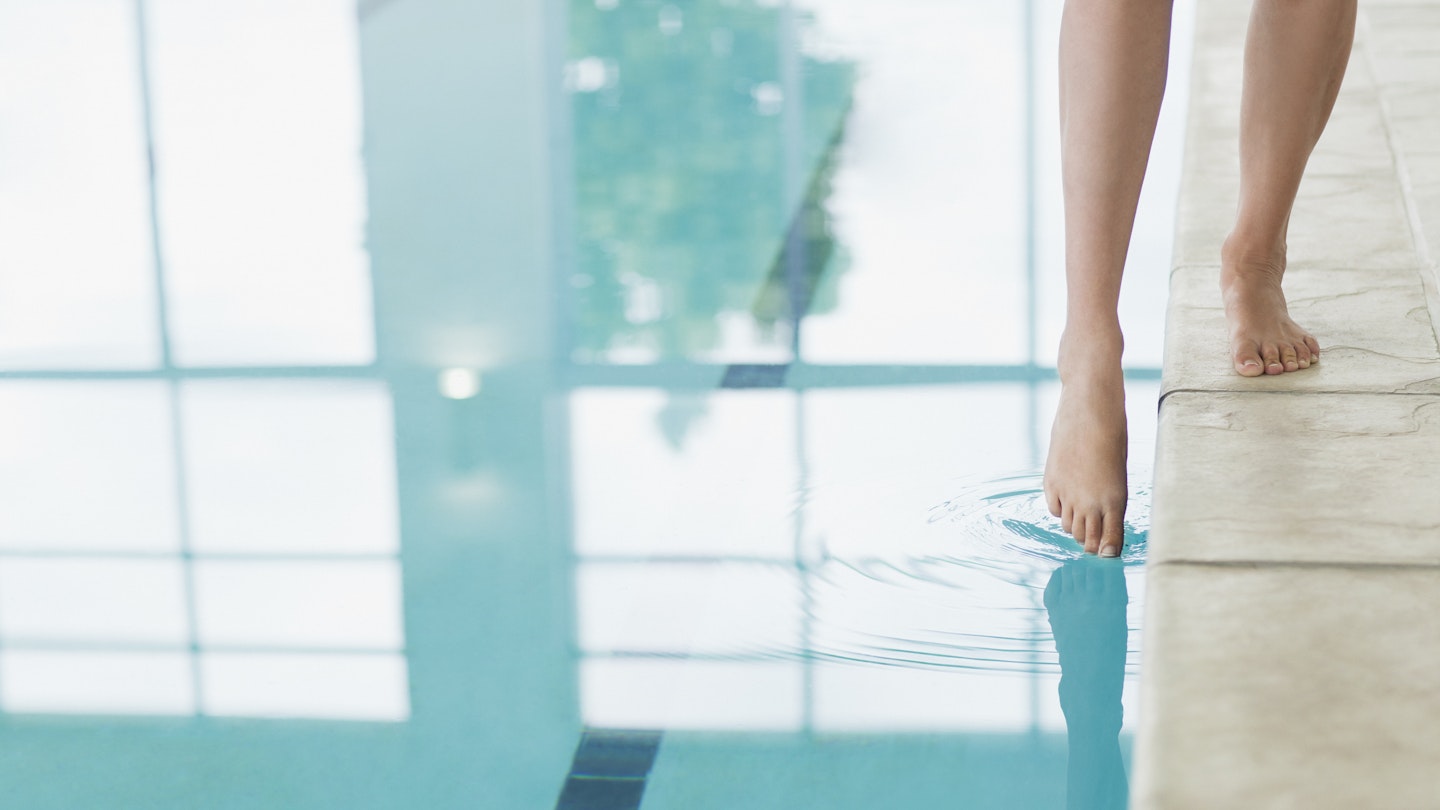‘Swimming was my world until I was a teenager,’ says Ellie*, 27, who up until two years ago hadn’t been swimming in a public pool since she was 14, ‘I swam competitively for a few years, but by year 9 the hatred I had for my body had gotten too much. I felt so insecure in a swimming costume.’
Ellie spent the next 11 years avoiding public pools, her love of swimming insignificant in the face of her insecurities. ‘I used to stand in the mirror before practice staring at my legs, my tummy, hating myself,’ she says, ‘I was completely healthy – physically – but I felt disgusting.’
It’s unsurprising, not just because the majority of women can relate to crippling body image issues as a teenager, but also because according to a new study, a third of British adults haven’t been swimming in a pubic pool decade, in large part because of body image issues.
The research, commissioned by John West as part of their Get Yourself Shipshape campaign, surveyed 2,000 adults and found that not wanting to wear a swimming costume in public was one of the top reasons Brits avoid public pools. Alongside reasons such as not having time and not wanting to get changed before and after swimming, the seafood company has recruited Olympic swimmer Rebecca Adlington to help encourage more people to make ‘little and often’ changes to be more active.
Alas, even Olympic swimmers aren’t immune from the body image issues that can arise from wearing a swimming costume in public. Just last week, Jazz Carlin, retired GB and Wales athlete who has won three Olympic medals in her career, opened up online about how insecure she’s been in a bikini or costume since she stopped training competitively
‘I have had to go to events and be in a swimming costume again,’ she told BBC sport, ‘and because I know how different my body is and that I don’t quite look like a swimmer anymore I haven’t actually felt confident being in a swimming costume... I really was feeling really insecure.’
Encouraging people to find confidence outside of what they look like and embrace their body, she has since received comments from various sportspeople across the industry relating to her sentiment. It seems that, no matter what we look like, having the confidence to embrace our bodies in their most natural state is a long-term issue many of us struggle with, whether we conform to mainstream beauty standards or not. And according to body image expert Helena Lewis-Smith, social media and programmes like Love Island are at the forefront of this epidemic.
'There is ever increasing pressure for people to conform to society’s narrow standards for beauty,' says Helena, senior research fellow at the Centre for Appearance Research, 'there continues to be a lack of diversity of appearance in the media and advertising. Plus, popular reality TV programmes, such as "Love Island", feature a cast who spend all day in either their bikinis or swimming shorts, and have either slim and slender or muscular bodies.
'This is likely to further increase pressure for people in the general population whose bodies are not represented in this TV programme,' she continued, 'In addition to being bombarded with images depicting unattainable beauty ideals in the forms of traditional media and advertising, people are also faced with this on social media. Celebrities and peers alike rely on the use of filters and airbrushing tools before posting their photos to social media. Viewing idealised images of this nature can make people feel more dissatisfied with their own appearance, and may lead them to hide their bodies and avoid certain activities which would bring more attention to them.'
Alas, with exposing your body one of the key components of swimming, it seems unsurprising that it's fallen to the bottom of our list of exercises. But how do we fight against this enduring issue? According to Helena, it's all about abandoning our desire to conform and focus on what our bodies are actually there for, not how they are consumed by other people.
'I would encourage anyone tackling body image issues to focus on and appreciate their body’s functionality and what it can do, as opposed to how it looks,' she said, 'Thank your body for enabling you to be able to go swimming and engage in other physical activities. Focus on being present and enjoying the moment, for example, enjoy spending that time going swimming with your friends or children.'
So the next time you're stood in front of a changing room mirror picking yourself apart, just remember that you're body isn't there for someone else's consumption. We've been sold a lie about how we should look for many years, all so certain people (read: men) could profit off of our insecurities, it's about time we stopped (lining their pockets and) letting it get in the way of doing the things we love.
